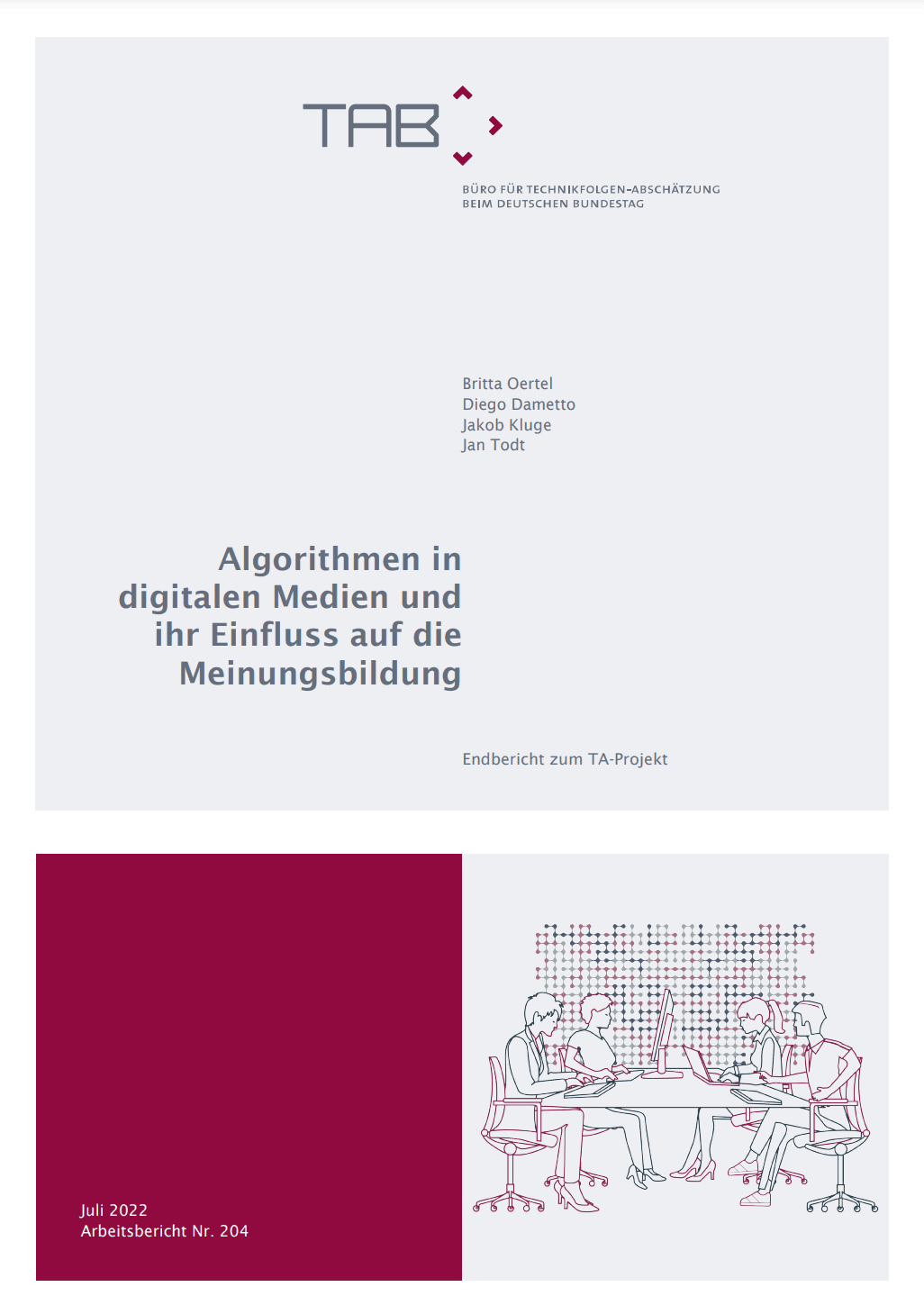Algorithms in digital media and their influence on opinion forming
Abstract
Freedom of opinion is a pillar of democracy, and the free formation of opinion is a prerequisite for this. In recent decades, the formation of opinion has been characterised by journalistic and editorial media such as radio and the press. Today, more and more people inform themselves via search engines, social networks or video platforms.
The operators of these online platforms develop and use algorithmic systems to decide which messages are displayed to which people and in which order. Little is known about how they work. The logic behind the algorithmic decisions is not transparent to users. The platform operators are not committed to journalistic standards and their business models are geared towards financial gain.
Fake news, microtargeting, video manipulation or even filter bubbles and echo chambers are among the dangers associated with online platforms and are categorised as a threat to democratic societies.
The TAB working report "Algorithms in digital media and their influence on opinion formation" explains the interrelationships: What is meant by opinion formation and what is meant by algorithmic systems of digital media? How is the use of traditional and digital media for news purposes changing in Germany? What findings do scientific studies provide on the significance of algorithms in digital media and their effects on the formation of individual and public opinion? What room for manoeuvre is there from a media law perspective?
Results at a glance are presented on the project page, a detailed summary precedes the final report.
